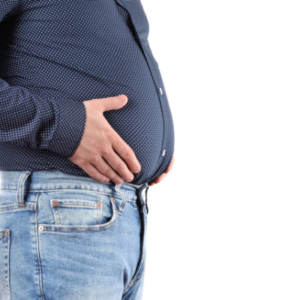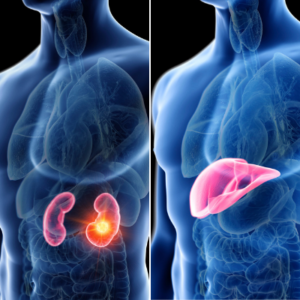Are you thinking of taking part in Dry January? Maybe as a part of your new year’s resolutions or even as a ‘detox’ from the festive period (and not to forget, the trials and tribulations of 2020)?
Here, we are going to look at the benefits of 31 days of sobriety.
What is Dry January?
Dry January is an annual movement in which millions of people give up alcohol throughout the month of January. That means you can’t have any alcohol from when you wake up on New Year’s Day through to the 1st February.
Taking part gives you the opportunity to ditch the hangovers, save some money and reset your relationship with alcohol. In fact, according to alcoholchange.org 72% of people who do Dry January had greater control over their drinking six months later.
What are the health benefits of taking part?
To keep health risks from alcohol to a low level, the UK Chief Medical Officers (CMOs) advise that it is safest to drink no more than 14 units a week on a regular basis. So if you’re going from a festive binge or unhealthy relationship with alcohol, to not drinking for an entire month, will you see any changes in your health?
Your mood could improve
If you often sit down most evenings with a glass of wine or pint of beer, it’s easy to believe that it perks you up and helps you to forget about the day’s worries. At first it might, but over time if consuming alcohol has become a main coping strategy, it may be hiding an underlying mental health illness such as depression or anxiety. Alcohol has been described as ‘the UK’s favourite coping mechanism’ and while taking part in Dry January won’t cure this, you’ll be in a better position to recognise if you’re struggling. This can then allow you to assess whether you need to make some time for natural mood-boosters (such as regular exercise) or perhaps that you need to speak with your doctor, rather than self-medicating. Dry January can help you to understand what your motivation for drinking is and where you can make long-term changes.
Click here for more information on alcohol and mental health.
 You will sleep better, resulting in boosted energy levels
You will sleep better, resulting in boosted energy levels
While we sometimes associate a boozy drink with sending us to sleep quickly, drinking alcohol before bed actually damages the quality of your sleep. Drinking moderate or high amounts of alcohol decreases ‘restorative’ REM sleep, according to a Alcoholism Clinic & Experimental Research review. REM sleep usually happens about 90 minutes after we fall asleep and is an important stage of sleep when you dream, stimulating areas of your brain that are essential in learning and making or retaining memories.
Getting better sleep has a number of health benefits, from improving your memory to reducing your risk of heart disease. While you may not immediately notice an improvement in your sleep, over time you will notice that you feel more alert and energetic throughout the day.
Also, the sheer fact that you’re not going out drinking can instantly lead to more sleep, better food choices and less skipped workouts.
You could notice some weight loss

We’ve all heard that alcohol contains ‘empty calories’, but that doesn’t mean that your drinks are calorie-free. In fact, alcohol contains more calories than you might be aware of. Just one pint of lager or large glass of wine a day could be increasing your overall weekly caloric intake by almost 1,500 calories (based on 200kcals per drink).
The reason that they’re classed as empty calories is because unlike food, the calories in alcohol contain
little to no nutritional value. Alcohol itself is also very calorie dense and for every gram of alcohol you consume, you’re taking in almost double the amount of calories than if you were to consume the same quantity of protein or carbohydrates.
So, let’s say you drink an average of 1 pint per day. By ditching the drinks for 31 days, that’s 6,200 calories you haven’t consumed.
If we go back to basics with weight loss, 3,500 calories equal approximately 1 pound of fat. So, it’s therefore estimated that you need to burn around 3,500 calories to lose 1 pound. This equates to a calorie deficit (consuming less calories than you burn) of 500 per day to lose a pound a week. So just by eliminating alcohol from your diet you could see a potential weight loss of almost 2lbs in January without even trying! Not to mention a helping-hand from the reduction in late night takeaways due to decreased inhibitions and an increase in exercise because you are hangover free and have the energy!
A study by Dr Mehta on the benefits of periods of abstinence such as Dry January noted that “Our work has shown that a month off alcohol, in healthy individuals drinking at moderate to high levels, does lead to tangible health benefits by the end of the month. Our study saw a weight loss of around 2kg, a decrease in blood pressure of around 5%, and improvement in diabetes risk of almost 30%.
 Improved liver and kidney health
Improved liver and kidney health
Our livers have the fantastic ability to self-heal, however, consuming alcohol above the low risk level does impact on this ability. Oli Barnard, Head of Service Delivery at Healthy Performance says “liver damage occurs in three stages, fatty liver, alcoholic hepatitis, and cirrhosis. The first stage is fatty liver, this is where a build-up of fat deposits occurs within the liver cells of heavy drinkers, but it is also seen within the livers of those drinkers consuming just over the weekly low risk drinking guidelines”. Oli advises that “fatty liver can be reversed by reducing or stopping drinking”. The second and third stages, alcoholic hepatitis and cirrhosis and extremely serious and can result in permanent scaring, liver failure and death.
The second stage of alcoholic hepatitis occurs when drinking continues while the liver has these fatty deposits. About a third of people with fatty liver will go on to develop hepatitis. Mild hepatitis does not always give symptoms, so continued drinking may occur, however severe hepatitis will lead to vomiting, abdominal pain, jaundice and can rapidly lead to liver failure and then death. Oli also notes that “stopping drinking for at least a month will allow some of the inflammation to reduce”.
The last stage is cirrhosis, where the ability to heal is lost, resulting in permanent scaring. Cirrhosis has no cure.
It is not just the liver that is affected by high alcohol consumption, the kidneys also have to work harder. The kidneys filter harmful substances, alcohol being one of them, however alcohol causes changes to the kidneys and reduces their ability to filter blood. Increased blood pressure resulting from high alcohol intake will also further stress the kidneys, the dehydrating impact of alcohol will again pile pressure on to the kidneys, forcing them to work harder still. All these effects will be removed once the alcohol intake is reduced or stopped.
Your skin will improve
Your skin shows what is going on in your body internally and drinking alcohol is one of the worst things that you can do for your skin. As a diuretic, it forces the water out of your body, leaving you dehydrated. It also makes it harder to rehydrate yourself afterwards causing your skin to be dry and flaky with fine lines and wrinkles being enhanced due to the lack of water in your body.
Many alcoholic drinks have a high sugar content which can also lead to acne breakouts. The effect alcohol has on your skin is often visible in the 24 hours after a night of drinking. However, by day 3 (as long as you haven’t consumed any further alcohol), your liver will have had time to excrete the toxins and you should start to see an improvement in your skin’s health.
By ditching booze for a month and allowing your body to function correctly, paired with improved sleep, a better diet (no more late night kebabs) and increased exercise, you will see a direct improvement in your skin.
How much money will I save?
Well, to put it simply, this all depends on how much you were drinking before. It also depends on your preferred drinking location – if you’re a regular pub-goer, you’ll save a lot more than someone who likes to drink at home. However, it is worth mentioning that the average drinker spends £50,000 on alcohol over their lifetime.
With the way that 2020 panned out, we’ve probably all managed to save some cash because we’ve physically not been allowed to go to pubs and bars for most of the year, and you can keep ramping up those savings throughout January!
Let’s do some maths…
Earlier in the article we looked at an average of 1 pint a day, so let’s use the same figures. Obviously the price of a pint varies depending on where in the country you’re based, but if we use the average cost of £3.94 and times that by 31 pints (for 1 pint a day), that’s £122 you’re saving in January. If you add a big night out into the equation as well, you could easily be saving in the region of £200.
Why should I take part in Dry January?
An alcoholchange.org article states that ‘A month alcohol-free has a lot of benefits: research published in 2018, conducted by the Royal Free Hospital and published in the British Medical Journal, found that a month off lowers blood pressure, reduces diabetes risk, lowers cholesterol, and reduces levels of cancer-related proteins in the blood. During Dry January last year, 88% of participants saved money, 71% slept better and 58% lost weight.’
If the physical and mental health benefits, as well as the positive financial impact of not drinking for a month isn’t enough to sway you, think about some more personal reasons to take part. When was the last time you truly challenged yourself? Have the nightmares of 2020 led you to have a poor relationship with alcohol? Do you often feel like you need alcohol to have fun? Making a change doesn’t have to be about your health or your bank balance, but about something that makes you feel good and gives you a sense of achievement.
For more information on why you should take part in Dry January or just generally consider how much you are drinking, along with a number of great resources to help you get started you can visit the Alcohol Change website here: https://alcoholchange.org.uk/











